Introduction to Chrysanthemum Tea
Chrysanthemum tea is a beloved beverage rich in tradition and flavor. Made by steeping dried chrysanthemum flowers, this tea finds its origins in East Asia, where it has been enjoyed for centuries. Its distinct characteristics include a delicate floral aroma paired with a light, refreshing taste. This combination makes it an appealing choice for tea lovers around the world.
The versatility of chrysanthemum tea contributes to its popularity. You can enjoy it hot during chilly evenings or cold on hot summer days, making it a year-round favorite. The flowers used in the tea come in various strains, each offering unique flavors and aromas. This diversity enhances the options available to tea enthusiasts who seek to explore different tastes. Preparing chrysanthemum tea is simple and requires only hot water and dried flowers. However, mastering the right ratio and brewing time can significantly improve the tea’s natural qualities. In the realm of herbal teas, herbal tea occupies a special place. Its soothing taste and ease of preparation have cultivated a loyal following. Beyond just a pleasant flavor, this tea promises numerous health benefits that are rooted in traditional medicine. As we explore further, we will uncover how chrysanthemum herbal tea can be a healthy addition to your daily routine.
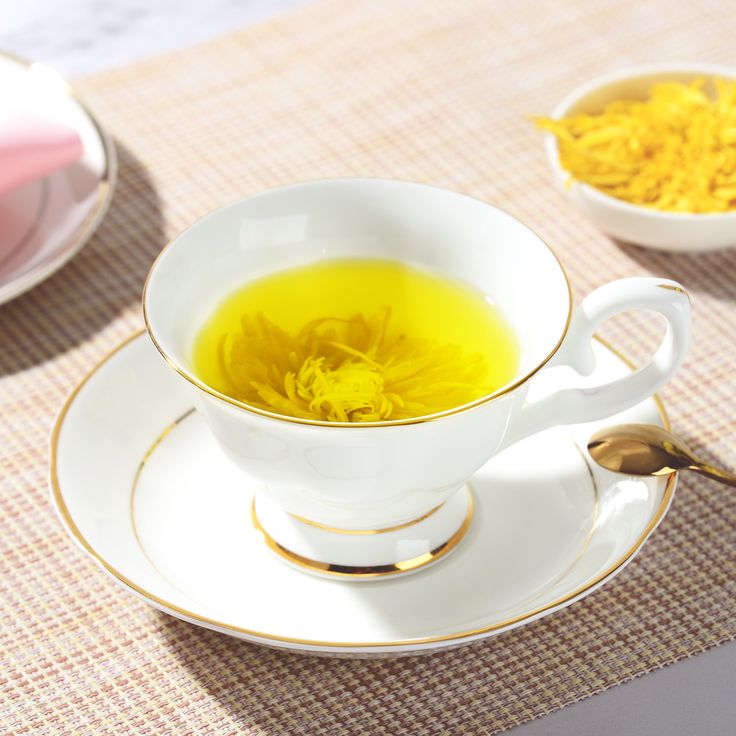
Historical Significance of Chrysanthemum Tea
Chrysanthemum tea has a storied past, rooted in East Asian history. The tea’s use dates back to ancient China, where it started as a medicinal drink. Royalty and commoners alike cherished it for its reputed health benefits. It was not just a drink but a part of cultural rituals and celebrations. The symbolism of chrysanthemum flowers in these regions denotes longevity and immortality.
During the Tang Dynasty, herbal tea was a symbol of elegance and refinement. It often appeared in the poetry and artwork of the time, reflecting its cultural significance. The Song Dynasty saw it rise in popularity as a leisure drink. Tea houses throughout China would serve it to patrons looking for a calming oasis.
Moreover, chrysanthemum herbal tea holds importance in traditional Chinese medicine (TCM). Practitioners in TCM have prescribed it for centuries. They believe it cools the body and helps with respiratory issues. Over time, the tea spread to Japan and Korea, becoming a regional favorite.
Today, chrysanthemum tea is part of many East Asian festivals and rituals. It is a common offering during the Double Ninth Festival in China. This is due to the flower blooming in autumn and its association with long life. In Japan, the tea is a staple during the Festival of Happiness. The historical roots of herbal tea are a testament to its enduring appeal and cultural resonance.
Nutritional Profile of Chrysanthemum-flower Tea
When discussing the benefits of chrysanthemum tea, understanding its nutritional content is key. This herbal tea offers a range of nutrients that contribute to its health-promoting properties. Here is a look into the nutritional elements typically found in herbal tea:
- Vitamins: Chrysanthemum tea is a source of vitamin C, an antioxidant that supports the immune system. It also contains smaller amounts of B vitamins, essential for energy production and brain health.
- Minerals: You will find minerals like potassium, calcium, and magnesium in the tea. Potassium helps regulate heart function, calcium is crucial for bone health, and magnesium supports muscle and nerve function.
- Antioxidants: The tea is rich in flavonoids and other antioxidant compounds. These substances help combat free radicals, potentially lowering the risk of chronic diseases.
- Amino Acids: Amino acids in herbal tea contribute to overall wellness. They play roles in vital body functions, including tissue repair and enzyme production.
- No Caffeine: Unlike some other teas, herbal tea is naturally caffeine-free. This makes it an excellent choice for those sensitive to caffeine or looking for a calming drink.
By sipping on chrysanthemum tea, you’re ingesting these beneficial nutrients. They work together to bolster your body’s health defenses and support various bodily functions. It’s important to note that while herbal tea does offer these nutrients, it should be part of a balanced diet to achieve the best health outcomes.
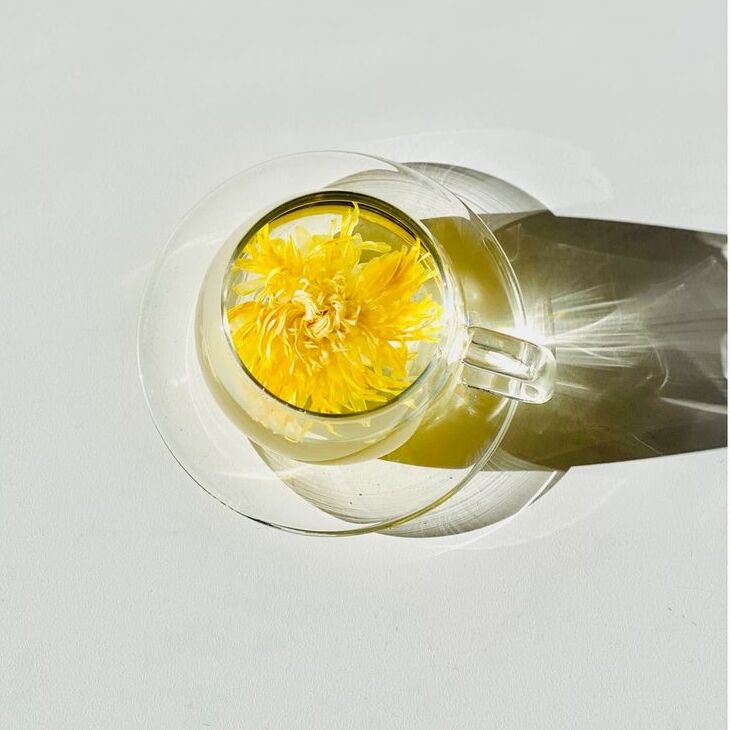
Key Health Benefits of Chrysanthemum-flower Tea
Drinking chrysanthemum tea offers a diverse range of health benefits. Let’s explore some of the most notable advantages this soothing beverage provides.
Promotes Heart Health
Chrysanthemum tea contains flavonoids that significantly contribute to heart health. These powerful compounds help manage blood pressure levels and promote good circulation. By improving blood flow, the tea supports overall cardiovascular health, reducing the risk of heart disease. Regular consumption can be a simple yet effective way to maintain a healthy heart.
Supports the Immune System
The vitamin C content in herbal tea plays a vital role in bolstering the immune system. This essential nutrient aids the body in fighting off common illnesses, such as colds and flu. Drinking herbal tea, especially during cold and flu season, can help strengthen your body’s defenses, making it easier to ward off infections.
Anti-inflammatory Properties
Chrysanthemum tea possesses anti-inflammatory properties that can benefit those with inflammatory conditions. These natural compounds help reduce swelling in the throat and alleviate skin irritations. By soothing inflammation, the tea promotes comfort and relief for individuals suffering from various ailments.
Calms the Nerves
As a caffeine-free beverage, chrysanthemum tea serves as an excellent option for relaxation. It can help reduce stress and promote a sense of calm. Enjoying a warm cup of this tea before bedtime can improve sleep quality and overall well-being. Many people turn to chrysanthemum tea for a soothing experience after a long day.
Eye Health
Chrysanthemum tea contains nutrients that may promote eye health. It’s believed to help relieve eye strain and improve vision over time. As digital devices increasingly affect our eyesight, drinking herbal tea can serve as a gentle remedy to support healthy vision.
Supports Bone Health
Minerals such as calcium found in herbal tea are crucial for maintaining strong bones. Regularly consuming this tea can contribute to bone density and overall skeletal health. This benefit is especially important for older adults and those at risk for osteoporosis.
Aids Digestion
Many people find chrysanthemum tea soothing for the stomach. Its mild properties can assist with digestion and alleviate issues such as bloating. Drinking this tea after meals can promote a comfortable digestive process.
In summary, herbal tea offers a wealth of health benefits, from boosting the immune system to calming the nerves. Its rich compounds make it a valuable addition to any health routine. However, remember that herbal tea should not replace medical treatments. Always consult with a healthcare professional for medical advice and before starting any new health regimen.
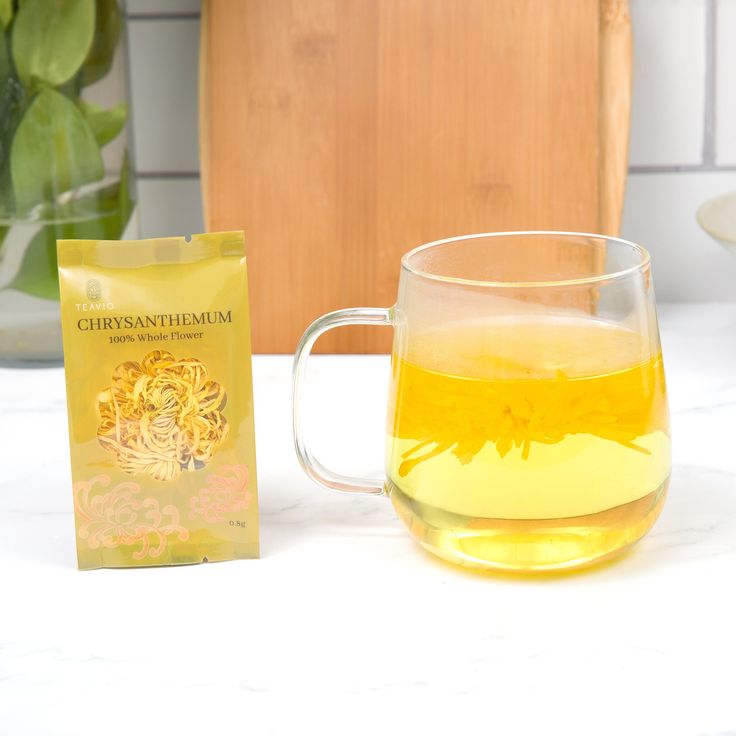
Making the Perfect Cup of Chrysanthemum Tea
To enjoy the full flavor and health benefits of chrysanthemum tea, following a few key steps is essential.
Select Quality Flowers
Begin by selecting high-quality, dried chrysanthemum flowers. Look for flowers that are whole, vibrant in color, and fragrant. High-quality flowers ensure a more flavorful and aromatic tea. You can often find them at specialty tea shops or health food stores.
Rinse the Flowers
Before brewing, gently rinse the flowers under cold water. This step helps remove any dust or impurities that may have accumulated during storage. Rinsing enhances the purity of your tea, ensuring a cleaner taste.
Use the Right Water Temperature
Heat your water until it reaches just below boiling point. The ideal temperature for brewing chrysanthemum-flower tea is approximately 90 to 95 degrees Celsius (194 to 203 degrees Fahrenheit). This temperature maximizes the extraction of flavors and beneficial compounds.
Steeping Time
Place the rinsed flowers in a teapot or cup, then add the hot water. Allow the flowers to steep for about 3 to 5 minutes. Adjust the steeping time based on your preference for strength. A longer steeping time results in a more robust flavor.
Strain and Serve
After steeping, strain the tea to remove the flowers. You can enjoy it plain for a pure taste or add a touch of honey or sugar if you prefer sweetness.
By following these steps, you can create a soothing and aromatic cup of chrysanthemum tea. Remember, tea quality can vary, so experiment with different brands to find the flavor profile that suits your palate best. Enjoy your chrysanthemum-flower tea as a warming drink on chilly days or as a refreshing iced beverage during hot weather. Happy brewing!
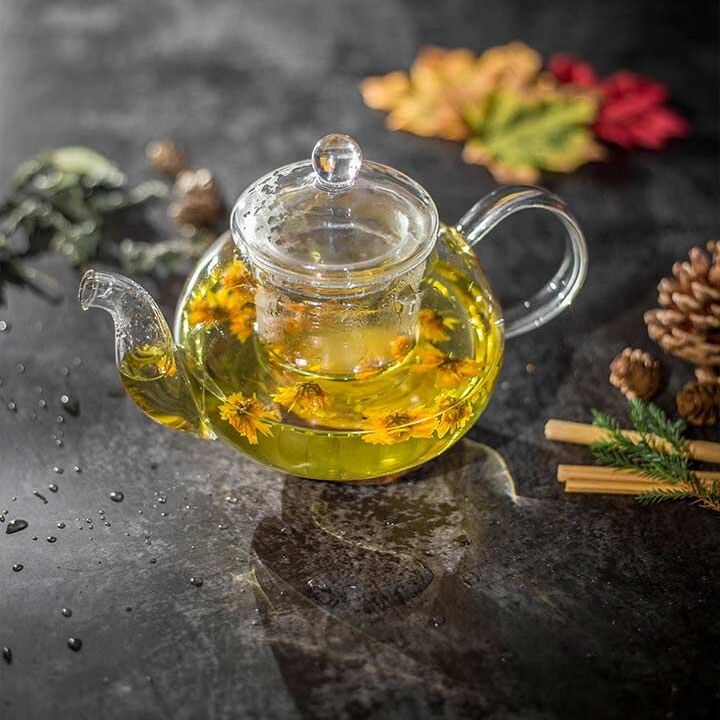
Potential Side Effects and Considerations
While chrysanthemum tea is safe for most people, some may experience side effects. It’s essential to be mindful of these when adding this herbal tea to your diet.
- Allergies: Individuals who are allergic to daisies or related plants might also react to chrysanthemum tea, as they belong to the same family of Asteraceae.
- Interactions with Medications: Chrysanthemum-flower tea may affect how the body processes certain drugs. This includes blood thinners and medications metabolized by the liver. Consult your doctor if you’re on medication.
- Pregnancy and Breastfeeding: There is not enough research about the safety of chrysanthemum tea during pregnancy or breastfeeding. As a precaution, it is best avoided during these times.
- Overconsumption: Drinking too much chrysanthemum-flower tea could lead to side effects. This may include nausea or dizziness due to its strong properties.
- Quality of Tea: Be sure to purchase tea from reputable sources. Poor quality tea may contain contaminants that can cause health problems.
It is important to note that while side effects are possible, they are relatively uncommon. Remember, moderation is key. If you notice any adverse reactions after drinking herbal tea, stop using it and seek medical advice. By being aware of these considerations, you can enjoy chrysanthemum-flower tea as a safe and healthy part of your diet.
Comparing Chrysanthemum-flower Tea to Other Herbal Teas
When comparing chrysanthemum tea to other herbal teas, several factors stand out. Each herbal tea has its unique blend of flavors and health benefits, so here’s a breakdown that sets chrysanthemum-flower tea apart.
- Flavor Profile: Chrysanthemum tea boasts a delicate floral aroma distinct from peppermint’s coolness or chamomile’s mild sweetness. Its light and refreshing taste offers a subtle retreat from the stronger flavors of other herbal teas like hibiscus or ginger.
- Health Attributes: Unlike green tea, which contains caffeine, chrysanthemum-flower tea is naturally caffeine-free. This makes it a fantastic choice for those seeking to lower caffeine intake. Compared to echinacea, known for boosting the immune system, chrysanthemum tea also supports immunity but with the added benefit of promoting heart health and reducing inflammation.
- Nutrient Content: While rooibos tea is praised for its high mineral content, Cchrysanthemum-flower tea holds its own with a good range of vitamins, minerals, and antioxidants. It’s particularly rich in vitamin C and offers a notable amount of magnesium and calcium.
- Cultural Significance: Few herbal teas have the same deep cultural roots as herbal tea. Its historical significance in East Asia marks it as not just a beverage but a part of traditional practices and celebrations.
Choosing to drink chrysanthemum tea over other herbal teas comes down to personal preference and desired health benefits. It’s versatile, nutritious, and steeped in history, making it a cherished drink for many.
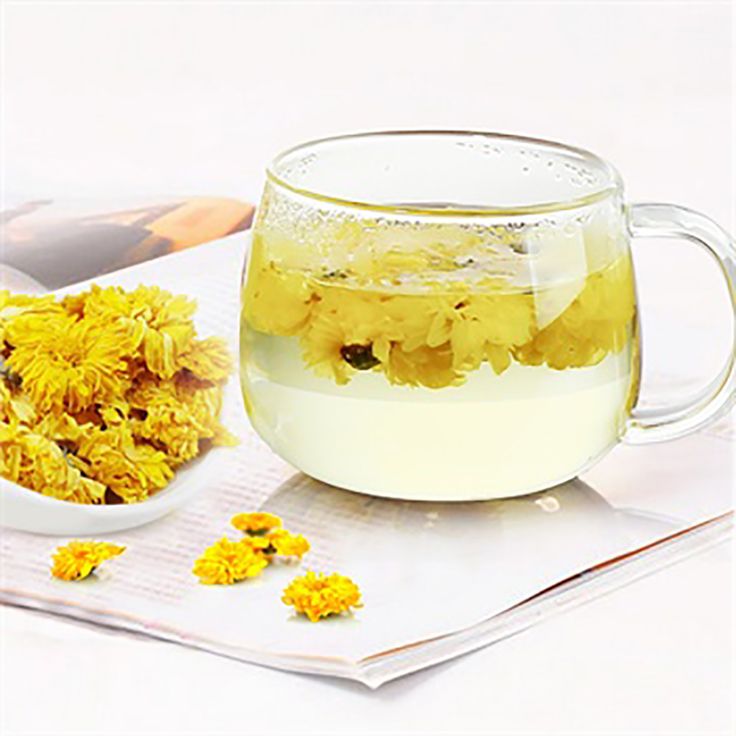
Incorporating Chrysanthemum-flower Tea into Your Diet
Adding chrysanthemum tea to your diet can be simple and beneficial. Here are some tips to get started:
- Daily Routine: Introduce flower tea into your daily routine. Replace one of your regular drinks with a cup of this herbal tea. Morning or evening times are ideal for its calming effect.
- Iced Tea Variety: Make a large pitcher of iced chrysanthemum infusion. Keep it in your fridge for a refreshing drink on hot days.
- Mix with Other Teas: Blend herbal tea with other herbal teas. Create unique flavors while enjoying multiple health benefits.
- Cooking Ingredient: Use flower tea as a cooking liquid. It can add a floral touch to grains like rice or quinoa.
- Customize the Flavor: Experiment with additives like honey, lemon, or ginger. This can create a taste that matches your preference.
- Mindful Consumption: Pay attention to your body’s response to the tea. Adjust your intake accordingly, making sure you enjoy its benefits without any discomfort.
Chrysanthemum tea can fit easily into various aspects of your diet. With its pleasant flavor and health perks, it makes for a wise and tasty choice.